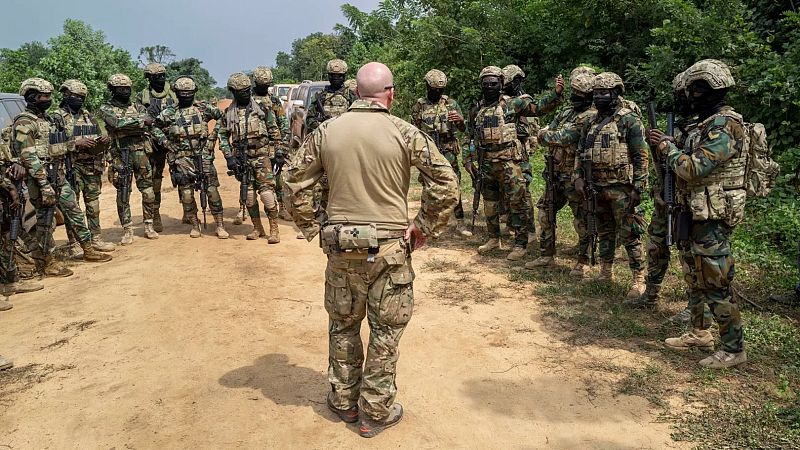Kenyans outraged as British army pays just $174 to wildfire victims

Following a landmark ruling hailed as a breakthrough for Western military accountability in Africa, the UK army is facing renewed scrutiny for shortchanging victims of a Kenyan wildfire started by British soldiers.
The UK government agreed on Thursday to pay £2.9 million ($4 million) in compensation to over 7,000 residents in the Lolldaiga Hills, after a wildfire sparked by a British military exercise devastated the area in 2021.
The out-of-court settlement followed a landmark ruling that stripped the U.K. government and British Army of immunity from Kenyan civil suits.
One of the legal representatives of the Lolldaiga community, Kelvin Kubai, lauded the settlement, saying it sets a precedent for future claims and redefines diplomatic and military accountability in host countries.
However, not everyone was equally enthusiastic about the outcome of the legal battle. Some residents expressed strong disappointment over the compensation amounts, which they said amounted to as little as 129 pounds ($174) per person.
The nearly 8000 Kenyans which had filed a class-action suit had requested 575 million pounds in damages before the Kenyan Environment and Land Court - nearly 200 times the amount which was eventually awarded.
“My home is closest to Lolldaiga Hills, so I suffered significant damages from the smoke of the fire. I also helped put out the fire,” said local resident Charles Ndungu, “to learn that people are receiving just 22,500 Kenya shillings ($174) is shocking.”
Some were planning protests to renew calls for transparency and justice. John Kiunjuri, an official of the Lolldaiga community that sued the British Army, told The Associated Press that “they would meet soon to discuss further steps.”
The court case in short
The 2021 wildfire erupted near the Lolldaiga Hills in Western Kenya during a joint drill between British and Kenyan forces, destroying parts of a protected conservancy and leaving behind explosive material that injured locals.
Outrage grew after a British soldier appeared to admit responsibility in a social media post, prompting a formal investigation by the Royal Military Police.
Locals said toxic fumes from the fire caused health issues, including respiratory complications and damaged eyesight.
A subsequent environmental assessment presented before the court showed that the fire caused extensive damage that would take between 30 and 50 years to tackle.
The British army had argued that it had immunity from trial in Kenyan courts, but that was thrown out in a ruling by Kenya's High Court Judge Kossy Bor, who stated that the U.K. lost absolute immunity against trial in local courts when it entered into a defence treaty with Kenya.
A lawyer representing the victims confirmed that compensation payments have been dispatched.
Today

